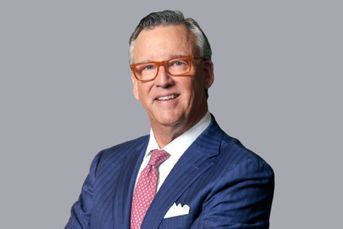Federated Hermes sued over using own funds in its 401(k)

The company filled its retirement plan menu entirely with its own funds, some of which underperformed and had high fees, a plaintiff alleges.
A former Federated Hermes employee this week sued the company because it included its own funds in the company’s 401(k) plan.
The asset management firm is latest to be targeted by a plaintiff’s law firm over the issue of using in-house products rather than comparable funds from outside providers that might have better performance records and lower fees.
The plaintiff in the proposed class-action case, Nicholas Koroly, claims Federated Hermes breached its fiduciary duties and engaged in prohibited transactions by filling its 401(k) menu exclusively with its own U.S. mutual funds.
A substantial number of the funds underperformed their benchmarks over five years as of September 2019, according to the complaint, and some of that subset of funds had higher fees than comparable third-party funds. The higher fees ranged from 1 basis point to 71 bps, and funds lagged benchmarks over five years by anywhere from 3 bps to over 13 bps annually, the plaintiff stated.
“That defendants selected [Federated Hermes Investments] proprietary funds to the exclusion of any and all other investment options on the market is not coincidental,” the complaint reads. “Given the widespread availability of other suitable investment options offered by non-FHI affiliated competitors in the marketplace, it is implausible that defendant’s exclusion of all other funds offered by its competitors was the result of an impartial fiduciary decision-making process.”
Numerous other financial services companies, ranging from Janus Henderson to Goldman Sachs, have faced similar lawsuits in the past.
The threat of that type of litigation puts fund companies in an awkward position. Including their own products on their 401(k) menus would seem to show that they believe in their investment capabilities — but it also makes them targets.
The cases are also enticing for plaintiff’s law firms, said Daniel Aronowitz, managing principal of Euclid Fiduciary.
“They’re easy to get past a motion to dismiss, because the funds are proprietary,” Aronowitz said. “And the highest level of settlements are in proprietary investment cases.”
Most often investment providers that have been targeted in such cases opt to settle, he noted. But a few big names have refused to settle, taking cases to trial and have won, he said. Goldman Sachs last year won the case against it, and American Century prevailed in a case in 2019.
The American Century case has been an example for investment providers, Aronowitz said. It doesn’t violate the Employee Retirement Income Security Act to include your own funds in your plan, but you need to be able to show why you included them.
The recently filed case against Federated Hermes “is just a typical complaint where they’re saying it’s imprudent to have your own investments in a retirement plan,” Aronowitz said. “I don’t see anything in Erisa that prevents that.”
It also raises a question — why would someone work at firm and not like its cooking, he noted.
“If you don’t believe in your own company, why are you working there in the first place?” he said. “These are unfair cases, but it allows plaintiffs’ lawyers to take advantage of funds.”
In the Federated Hermes case, that could be a challenge. Although the actively managed funds have higher fees than many passively managed funds, ERISA doesn’t require plans to go with the least expensive options. Further, many of the funds identified in the complaint have favorable ratings from Morningstar, Aronowitz noted.
A Federated Hermes spokesperson said in an email that the firm has a policy of not commenting on litigation.
The case was filed in U.S. District Court in the Western District of Pennsylvania.
The law firms representing the plaintiff and proposed class are Scott + Scott and Peiffer Wolf Carr Kane Conway & Wise.
Diabetes, weight loss drug companies growth far from over, says ClearBridge analyst
Learn more about reprints and licensing for this article.








